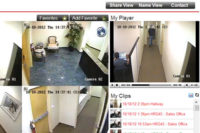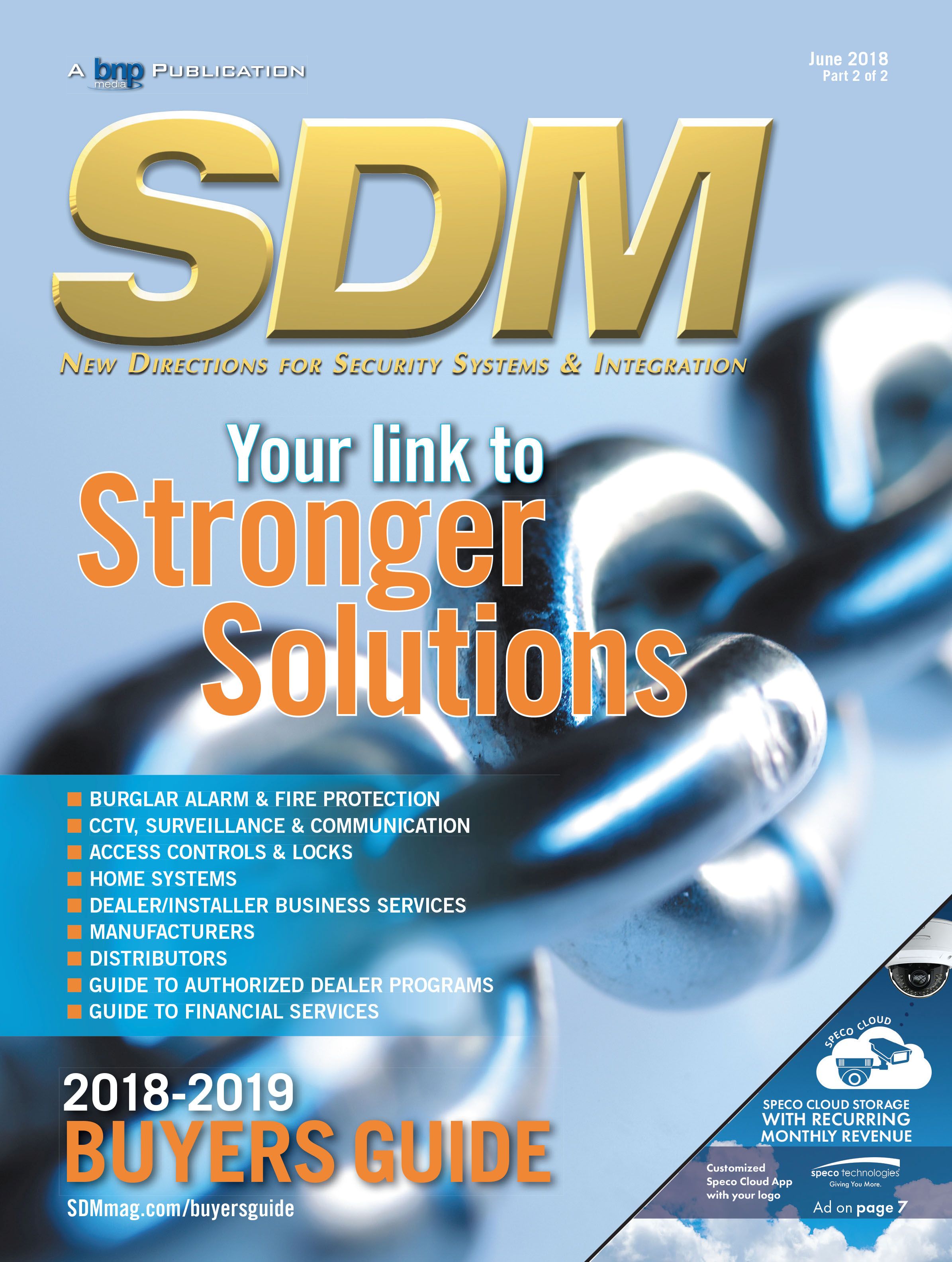When technicians at Aberdeen, N.J.–based security dealer Garden State Fire and Security install or service a system, one of their tools is a laptop equipped with cellular data connectivity. To put the system on test, technicians use a portal operated by SentryNet, Garden State’s wholesale central station, which has locations in Greenville, Miss. and Pensacola, Fla.
Unlike in the past, technicians do not need to call SentryNet and wait for a central station operator to enter the appropriate commands into the central station software to put the system on test. Instead, the technicians enter those commands themselves.
“It’s like we’re the central station,” explains Garden State Fire and Security owner Mike Ash.
Garden State also gets email alerts from SentryNet to let the company know when a burglar or fire alarm occurs, as well as regular email reports that help in managing the business. Dealer employees also can pull up an account’s alarm history as needed to help in troubleshooting.
SentryNet is just one of numerous third-party central stations that offer a web portal that dealers can use to enhance and streamline operations. As David Smith, director of marketing and communications for wholesale central station C.O.P.S. Monitoring, Williamstown, N.J., explains, dealers can use these portals to stay connected to their account database.
“They get instant access to real-time data,” notes Smith. “If a customer calls service or billing, they can speak intelligently about the account.”
In this article we look at the capabilities of these dealer web portals and other communications tools available now to dealers that use third-party central stations to monitor their accounts.
A Tool for Technicians
In researching this article, SDM spoke with representatives from five different third-party central stations, as well as three dealers that use alarm management tools provided by one of these central stations. All of the central stations we spoke with offer a web portal that provides functionality similar to what Garden State uses. In addition, all of the central stations give dealers the ability to receive alerts and reports via email, which the dealers can customize.
Some central stations also offer smartphone apps that display the same sort of information as the web portal but in a format customized for the small screen — or if a central station doesn’t have a smartphone app, it’s likely to have a special web address for smartphone users that serves up information in a smartphone-appropriate format.
All of the dealers we spoke with said their technicians use a portable wireless device — either a laptop or smartphone — to interface with their wholesale central station. All of them cited the ability to put customers on test without calling the central station as a key benefit.
Smith notes that a cellular connection to the central station database can be particularly useful for fire system inspections. “Technicians can send in a signal and see it come in on their smart phone — and the fire marshal can see it as well,” Smith explains.
Important Alerts
Different dealers have different preferences about how and how often they want to be alerted of fire and burglar alarms and trouble signals. For example, Des Plaines, Ill.-based central station Emergency 24 offers dealers the option of being notified of alarms immediately or on a twice-daily basis. The latter option may be preferable for high-volume dealers that get large numbers of alarms every day. And even among dealers that want immediate notification, some may want to receive an email, while others may prefer to see the information made available through an application that scrolls the data across a computer or display screen.
“Some dealers call the customer on every alarm,” observes Jeffrey Atkins, president of wholesale central station Rapid Response Monitoring, Syracuse, N.Y. “They run a report in the morning and have an employee call every customer to follow up.”
Typically dealers can use their central station’s web portal or smartphone interface to order reports or alerts from the central station — and those reports and alerts can be highly customized.
There was one type of alarm, though, that sources were in virtually unanimous agreement about. Runaway alarms, they say, are something all dealers need to know about right away. In the past, this might have required the central station to place a call to the dealer, but today such notification is typically handled electronically — by email or through a smartphone app.
“If we get an excessive number of signals from an account in one day, we jump on it immediately,” notes Frank Icus, owner of Early Warning Alarms, Chicago, a dealer that uses Emergency 24 as its central station.
Useful Reports
Other monitoring information may be less urgent, but still important to a dealer’s operations. Several sources note that an important report for dealers to receive, say, once a day is a list of accounts that failed to send a scheduled test message.
Since the advent of voice-over-Internet protocol service, more and more dealers have begun to routinely program panels to send a test message to the central station — typically daily, weekly or monthly. If the central station does not receive the test message, it could be an indication that an account canceled its traditional phone service, thereby rendering the alarm inoperative.
“It’s important that not a lot of time elapses while a customer is unprotected,” cautions Kevin McCarthy, national sales manager for Emergency 24.
Rapid Response recommends a minimum of a one-month test. Atkins advises dealers to call any customer whose system fails to send a test signal to ask if there has been a change in phone service. “Nine times out of 10, the customer says yes,” notes Atkins.
“Another popular report is a breakdown of dispatch-able alarms received,” comments Christopher Denniston, manager of inside sales support for Rapid Response. This report essentially identifies customers that have experienced a high percentage of false alarms — and some dealers use it to follow up with accounts to determine and address the cause of the false alarms.
A report that Garden State Fire and Security likes to get is one that lists accounts that have not used their systems for six months, notes Ash. An employee can then call each account on the list to follow up.
The End User Interface
Some third-party central stations give dealers the ability to make a web portal interface available to end user customers. These portals do not support the same range of functionality as the dealer portal, but typically give the account the ability to change access codes. The dealer may have the option of customizing the portal with its own logo and branding.
Ash says Garden State gave one key customer the ability to make changes to its account at the central station. The client was a large retailer with numerous locations that had to make frequent changes to access codes and the like.
C.O.P.S. offers an end user portal that enables end users to check their alarm history. “It cuts down on dealer calls and enhances customer satisfaction,” comments Smith.
Emergency 24 also offers an end user portal and McCarthy notes that some dealers like to use it to give end users have the ability to put their own accounts on test.
| Specialized Functions Enhance Central Station Value |
|
Some central station web portals and smartphone apps offer dealers specialized tools for managing alarms and accounts.
Dealers that use Rapid Response can listen to a digital recording of a customer’s phone conversation with a central station operator through their dealer web access — RapidWeb3k. Personnel at Keyth Technologies Inc., a Highland Park, Ill.-based dealer, find this capability particularly useful for troubleshooting, notes Tonya Wibe, data services manager for Keyth Technologies. “You can learn a lot by listening to a phone call,” comments Wibe. Rapid Response has apps for iPhone, iPad and Android. Its Android app supports speech recognition, offering users an alternative to entering keyboard commands on their computers or cellphones. In addition Rapid Response gives dealers the ability to essentially maintain a complete copy of their central station database on their premises through Rapid’s SQL based proprietary software — RapidLink3k, which automatically updates the database stored by Rapid Response. “Some dealers want data instantaneously rather than accessing it over the web,” explains Atkins. Smith notes that the C.O.P.S. web portal is so powerful that dealers sometimes don’t remember all of the capabilities that are available to them. C.O.P.S. offers one-on-one training on the portals when new dealers come on line, but in case dealers forget some of it, the central station offers online videos to remind dealers how to use specific functions. |
| What a Difference a Digit Makes |
|
Some of the ways that wholesale central stations are helping their dealers manage alarms are less high tech than web portals and smartphone apps. But that doesn’t make them any less useful.
SentryNet, for example, has implemented a policy of requiring dealers to use numeric passcodes for their customers, eliminating the use of passwords. This was SentryNet’s latest move in ongoing efforts to reduce false alarms. When a customer experiences an alarm, a central station operator routinely calls the premises and if the alarm was caused by user error and the user answers the phone, the central station operator asks for the end user’s passcode and enters it into the central station database. If it matches the passcode stored there, the alarm is canceled. If not, the net result could be a false alarm. When it comes to words, “something clear and common for the subscriber might sound foreign to an operator,” explains Michael Joseph, vice president of operations for SentryNet. SentryNet made the decision to move to all-numeric passcodes after a preliminary test revealed that central station operators are less likely to type in an incorrect passcode when the passcode is all-numeric. Meanwhile, Rapid Response has instituted procedures aimed at addressing another concern for security dealers — the time it takes central station operators to process an alarm signal. Rapid Response advises dealers of every incorrect contact phone number the central station identifies. “We protect life and property,” Atkins observes. “When an alarm comes in we want to take action as quickly as possible. If something is wrong, it deters us. If a number has been disconnected or changed, it slows down the process.” |






